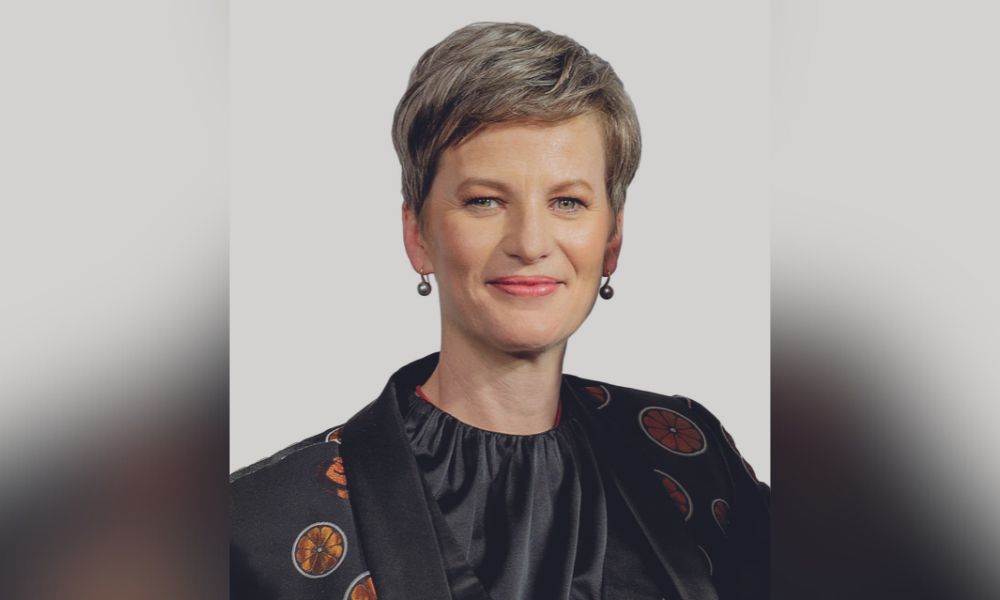From ANZIIF CEO to truffle farmer

From ANZIIF CEO to truffle farmer | Insurance Business Australia
Insurance News
From ANZIIF CEO to truffle farmer
Reflections on 10 years of challenges and changes
Insurance News
By
Daniel Wood
Prue Willsford (pictured above), is transitioning out of her decade long role as CEO of the Australian and New Zealand Institute of Insurance and Finance (ANZIIF).
Insurance Business asked Willsford, ‘what’s next? Is she taking time off, perhaps even backpacking around the world?’
“I’m off to be a truffle farmer?” said the CEO.
“Truffles?” quizzed IB.
“You’re looking at the farm,” said Willsford as she moved sideways to allow IB to see an agrarian landscape down the Teams video camera. “I have 40 oak trees planted and I’ve put in 80,000 litres of water, an irrigation system and a fence – it’s been busy on the farm.”
She said this preparation has taken a number of years.
“I’ve just about finished building the second most beautiful shed in the world,” said Willsford.
The “second,” she said, because of the likelihood of a more beautiful one existing somewhere in the world. That careful judgement call sounds typical of someone connected to the insurance industry.
What’s changed at ANZIIF?
IB asked Willsford what’s changed at ANZIIF since she walked in the door 10 years ago?
“Fundamentally, changing our education model and moving to skills units by breaking learning down into smaller manageable learning chunks that are incredibly flexible,” she said.
ANZIIF now offers units, she said, for continuing professional development (CPD) and the same units can also be put together to build a course.
“I’m really, really proud of the quality of the education that we’ve been able to deliver in an incredibly modern format,” said Willsford.
Two professional standards frameworks
“Being able to deliver two professional standards frameworks that have never existed in our industry,” she said. “That’s a real legacy piece for me, I’m hugely proud of both of them.”
Willsford said she’s also very proud of her relatively small ANZIIF team.
“We’re like the Wizard of Oz, people think we’re really big but you pull the curtain back and it’s just one person pulling a few levers,” she said. “There are only 55 of us and our impact across the region is we punch above our weight in terms of what we bring to the market.”
A big challenge: industry apathy
For an organisation responsible for education and setting professional standards, her decade has not been without challenges.
“The pace of change is too slow,” said Willsford. “So being able to really drive the value element of professionalism home – that’s hard but it’s worthwhile.”
She said her organisation’s biggest competitor “is probably apathy.”
“As you can imagine, I’m quite passionate about learning and the fact that it actually changes people’s lives,” said Willsford. “By apathy I mean people not understanding the value of having and creating a profession and of being properly certified around what you do.”
Stake in the ground
In a recent IB interview, she said the claims handling framework was “a stake in the ground.”
“It’s a step change,” said Willsford. “We have the vast bulk of GWP already committed to implementing this framework over the next couple of years and they can do that in a range of ways.”
For the first time, Australia’s insurance industry has broadly agreed to a set of voluntary standards that indicate what claims handling competency looks like and that also provides that role with a career pathway.
The claims handling framework, from a licensing perspective, she said, gives companies an independent benchmark that they can adapt to their circumstances and use to map their products and services, their job roles and their people.
“It’s a risk-based assessment and it enables them to document clearly what their version of good looks like against that independent benchmark,” said Willsford.
Willsford suggested there was some industry opposition to the framework.
“We did have really constructive, and I do mean constructive, pushback throughout the process,” she said.
Willsford said some were concerned about another layer of standards requiring monitoring and management.
“But the reality is, you already have to monitor and manage it because you’ve got a license obligation,” she said. “I think once people really understood the benefits – in particular the employee value proposition, the customer value proposition and the regulator value proposition – they went, ‘Oh! That makes sense.’”
What ANZIIF education offerings do you appreciate most and what more would you like to see? Please tell us below.
Related Stories
Keep up with the latest news and events
Join our mailing list, it’s free!






